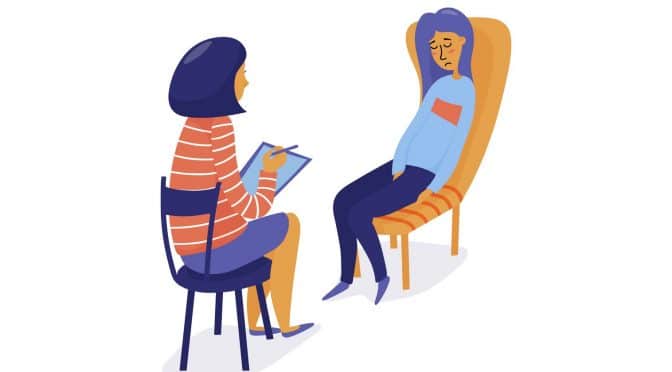Why the Best Psychologist in Delhi Can Change Your Psychological Health
Why the Best Psychologist in Delhi Can Change Your Psychological Health
Blog Article
Psych Treatment: A Comprehensive Overview to Outcomes and strategies

Cognitive-Behavioral Treatment
Cognitive-Behavioral Treatment (CBT) is a commonly utilized psychotherapeutic approach that concentrates on recognizing and customizing inefficient thinking and habits patterns. Developed in the 1960s by Aaron T. Beck, CBT incorporates behavior and cognitive concepts to resolve different psychological wellness issues, including clinical depression, anxiety, and stress-related disorders.
Methods such as cognitive restructuring, exposure therapy, and skill-building exercises are generally employed. Cognitive restructuring entails difficult and modifying negative thought patterns, while exposure therapy aims to lower fear and anxiousness via steady direct exposure to feared things or scenarios.
Evidence-based study supports the efficiency of CBT for a wide variety of mental disorders - Best Psychologist in Delhi. Its emphasis on ability procurement and self-help techniques encourages clients to continue development separately after treatment wraps up. The adaptability and performance of CBT have made it a foundation in contemporary psychotherapeutic technique
Psychodynamic Approaches
Rooted in the very early concepts of Sigmund Freud, psychodynamic methods concentrate on discovering the unconscious mind and its influence on behavior and emotions. These approaches aim to reveal concealed ideas and sensations that might be driving maladaptive behaviors and psychological distress. Central to this method is the concept of inner problem, usually coming from unresolved past experiences, specifically those from youth.
Therapists utilizing psychodynamic strategies utilize a number of key techniques, including totally free association, where clients are urged to speak freely to reveal unconscious product, and dream analysis, which interprets the unexposed material of dreams. Additionally, the exploration of transference and countertransference dynamics within the therapeutic partnership is vital. These communications can supply understandings right into the individual's internal world and relational patterns.
Psychodynamic treatment is normally longer-term contrasted to various other methods, offering a deep and comprehensive understanding of the person's mind. Research study suggests that it can be especially effective for complicated mental health and wellness problems, such as character problems and persistent clinical depression. By fostering self-awareness and psychological insight, psychodynamic therapy looks for to bring unconscious product to awareness, making it possible for people to achieve enduring and meaningful adjustment in their lives.
Humanistic Strategies
Building on the structures laid by psychodynamic approaches, humanistic techniques supply a distinctive perspective concentrated on private potential and self-actualization. Stemming in the mid-20th century, these strategies focus on the integral benefits and development possibility of people, highlighting a holistic sight of human experience. Secret figures such as Carl Rogers and Abraham Maslow have dramatically influenced this healing approach, which encompasses methods like client-centered treatment and Gestalt treatment.
Client-centered therapy, established by Rogers, plays an essential function in humanistic methods. It counts on the therapist giving an atmosphere of unconditional favorable regard, compassion, and harmony. This promotes a risk-free room for clients to discover their check that sensations and experiences without judgment, assisting in self-discovery and individual growth. The therapist's function is more of a facilitator than an authority, urging customers to harness their inner resources for healing.
Gestalt treatment, one more essential humanistic method, stresses existing minute recognition and the combination of body and mind. By concentrating on the "present moment," clients acquire greater understanding into their present feelings and behaviors. Techniques such as role-playing and led visualization are usually utilized to help clients get a much deeper understanding of themselves, eventually bring about boosted self-awareness and satisfaction.
Integrative Therapies
Integrative treatments represent a synthesis of numerous restorative methods tailored to fulfill the special needs of each customer. This approach acknowledges the complexity of human psychology and the multifaceted nature of mental health issues. By incorporating components from different schools of psychiatric therapy-- such as cognitive-behavioral treatment (CBT), psychodynamic therapy, and humanistic approaches-- integrative treatments supply a more alternative and flexible treatment standard.
Experts of integrative treatment assess each client's specific demands, signs, and personal background to develop a personalized treatment strategy. This individualized technique boosts the potential for healing success by resolving the origin creates of emotional distress and advertising total wellness. Methods might include mindfulness workouts, cognitive restructuring, and psychological handling, each chosen to target various aspects of the client's issues.
In addition, integrative therapies highlight the restorative partnership, viewing the client-therapist bond as a vital element of efficient therapy. This connection fosters an encouraging environment where clients feel safe to discover and resolve their problems. The flexibility of integrative treatments makes them ideal for a broad array of problems, consisting of stress and anxiety, clinical depression, injury, and social difficulties, thus increasing their applicability and effectiveness in varied professional setups.

Determining Therapy Outcomes
Reviewing the efficiency of psychotherapy is critical for both clients and clinicians to ensure that the therapy is yielding the desired outcomes. To attain this, various approaches and tools are employed to measure treatment outcomes methodically. Standardized assessment tools, such as the Beck Depression Supply (BDI) and the Generalized Stress And Anxiety Condition 7 (GAD-7), give measurable information on sign severity and changes over time.
Along you can check here with standardized tools, qualitative techniques like customer self-reports and clinical meetings supply useful understandings into the personal experiences and viewed development of customers. Regularly scheduled assessments, typically at the start, navel, and end of therapy, aid in tracking the trajectory of improvement or determining try this site locations needing change.
End result measurement is not limited to symptom decrease; it likewise includes useful renovations in day-to-day live, such as better social partnerships, raised job productivity, and boosted overall well-being. Modern innovations in digital health have introduced mobile applications and on-line systems that assist in real-time surveillance and comments, further improving the evaluation procedure.
Inevitably, a comprehensive approach to determining treatment outcomes makes sure that healing treatments work, efficient, and tailored to fulfill the individual needs of clients, consequently enhancing the general healing experience.
Conclusion
Humanistic methods concentrate on individual development and self-actualization, while integrative treatments combine several approaches for customized treatment plans. Examining treatment results via qualitative approaches and standardized evaluations guarantees a detailed understanding of effectiveness, eventually directing clients toward withstanding mental wellness renovations.
From the structured approach of Cognitive-Behavioral Therapy (CBT) to the deep exploration of the unconscious in psychodynamic therapy, each method brings one-of-a-kind advantages. Its emphasis on skill procurement and self-help techniques encourages clients to continue development independently after therapy concludes (Best Psychologist in Delhi). Trick numbers such as Carl Rogers and Abraham Maslow have dramatically affected this healing strategy, which includes methods like client-centered treatment and Gestalt treatment

Report this page